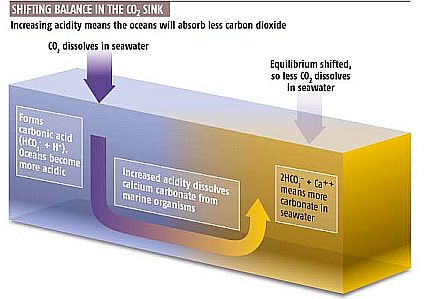
What happens when you drink a lot in the evening? The answer is obvious! You have a hangover in the morning. Similar is the case with our environment, once the oceans and the atmosphere drink a lot of CO2 emitted by us, it too will go in a hangover that will not last a day or two but hundreds of thousands of years. This hangover might cause enough warming to delay the next ice age by thousands of years.
Researchers have estimated carbon dioxide as having a lifetime in the atmosphere between 5 and 200 years before it is ultimately absorbed by the oceans. The detailed specs show an even grave picture of the planet, researchers are estimating that one-tenth of the CO2 we are emitting now will keep on lingering in the atmosphere for at least 100,000 years and even much longer than that.
We all estimate that the unique power of Earth to heal itself might sort out things for us. However, the stats don’t show this. As the atmosphere keeps on accumulating more and more CO2, the more amount is absorbed by the oceans that makes them more acidic. This increase in the acidity levels of water dissolves more calcium carbonate from the shells of marine organisms. This in turn reduces the oceans’ ability to absorb more CO2 from the atmosphere leaving more of this greenhouse gas lurking in the air.
This increase in atmospheric greenhouse gases will result in the onset of global warming that will ultimately delay or even prevent the next ice age that usually occurs every 100,000 years. Changes in the orbit of our planet make it shift away from the sun, which decreases the amount of sunlight and the heat entering our atmosphere. This triggers a global cooling effect resulting in the growth of ice caps. For some reasons that are still not clear, this global cooling causes the ocean to draw more CO2 from the atmosphere. Starved of this greenhouse gas the atmosphere’s temperature plunges until the planet is covered in ice.
For now the amount of CO2 in our atmosphere rests at 380 ppm, up from a pre-industrial level of 280 ppm. An analysis shows that these levels could reach 900 ppm by the end of the century. CO2 levels above 560 ppm would most certainly be enough to prevent the global cooling that now triggers an ice age. Even levels of 400 ppm might make this process less likely.
This all might look good as the planet might be deprived of its next ice age, but future consequences of this can be devastating. Researchers are estimating that even if nature absorbs all the CO2 from the planet, then also it will postpone the next ice age by half a million years, that is four normal ice ages might never happen.
Via: New Scientist




